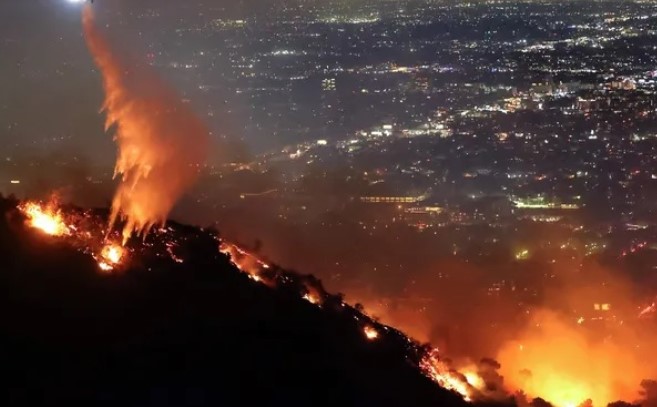
STRATEGIC ASSESSMENT. In an effort to compel Russia to cease its military operations in Ukraine, on March 8, the United States announced a ban on the importation of oil from Russia, and the United Kingdom announced that it will end its imports of Russian oil and oil products by the end of 2022. Russia accounts for about 8% of the two countries’ total oil imports; in the case of the United States, the import volume is approximately 500,000 barrels of oil per day. Although both the United States and United Kingdom assessed that energy sactions on Russia could worsen already elevated inflation levels in both countries, the U.S. and U.K. leadership assessed that the need to signal resolve against President Vladimir Putin’s aggression against Ukraine outweighed the economic costs of their measures.
The U.S and U.K announcements immediately roiled global oil markets, spiking the price of crude oil almost 20%—to about $130 per barrel. Russia exports about 5 million barrels of crude oil per day—an amount that is almost impossible for one or a small group of oil exporters to instantly compensate. However, prices eased to about $110 per barrel by March 11 as energy markets began to forecast that realignments of the global oil markets would mitigate any supply shortfalls. China has indicated it would not join Western sanctions on Russia, and it has reportedly begun increasing its volumes of Russian oil imports, likely at a steep discount to world prices. Russia’s satisfaction of a greater proportion of China’s demand for oil frees up supplies from such large exporters as Saudi Arabia to instead go to refiners in the United States, the United Kingdom, EU countries, and elsewhere that are reducing their imports of Russian oil.
European Union (EU) countries are concerned first and foremost about the availability of natural gas, in large part because EU countries import approximately 45% of their gas from Russia, according to the International Energy Agency. Some EU leaders, particularly Germany’s Chancellor Olaf Scholz, expressed concerns that Moscow might, if provoked by energy sanctions, cut off natural gas supplies entirely, leaving Europe with few immediately available alternatives and struggling to avoid severe shortages. The EU did not join the United States and the United Kingdom in banning energy imports from Russia, but the bloc signaled to Moscow that it would work to reduce its dependency on Russian energy and undercut Moscow’s strategic leverage over the EU more generally.
In advance of a March 10-11 EU summit in Versailles, France, the European Commission (the executive arm of the EU) outlined proposals to reduce EU purchases of Russian gas by two-thirds before the end of the year, and to cease buying any fossil fuels from Russia by 2027. Although EU leaders at Versailles tabled until May discussion of a firm 2027 deadline, the EU plan represented a departure from the initial EU hesitancy to move against Russia’s energy sector. The EU plan relies heavily on efforts to increase renewable hydrogen production and improve energy efficiency in households. European Commission president Ursula von der Leyen framed the proposals as dovetailing with broader European energy policy, stating: “We need to act now to mitigate the impact of rising energy prices, diversify our gas supply for next winter and accelerate the clean energy transition.” But, the success of the plan will no doubt hinge on finding alternative supplies from such gas exporting countries, including Qatar, Australia, the United States, Norway, Azerbaijan, Algeria, and others. Many of these countries currently have most of their natural gas exports committed to buyers in Asia and elsewhere under long term contracts, but they will be able to allocate more natural gas supplies to Europe over time.
When coupled with Western sanctions against Russia’s financial system, the U.S., U.K., and European energy measures will severely harm the Russian economy. Russia’s energy sector provides nearly half of the revenue for its government budget, according to the Russian finance ministry. However, multilateral sanctions require time to affect a target government’s decision-making, and it remains an open question whether any of the Western energy-related announcements would directly or quickly affect Russia’s pursuit of its military and political objectives against the Kyiv government. To date, including in published readouts of conversations with French and German leaders on March 12, President Putin has given no indications that sanctions are causing him to soften his demands or objectives in Ukraine. Still, the U.S., U.K., and EU energy measures have signaled that, even if Russia were to end its operations in Ukraine, Western leaders will not do “business as usual” with the Kremlin as long as President Putin remains in office. Neither the United States nor any European leader has articulated that the objectives of energy sanctions are to cause Putin’s removal from power, but neither has any Western leader indicated circumstances in which such energy sanctions would be lifted. No matter when the Russian intervention in Ukraine ends, Moscow’s invasion has sparked a long term—and some argue long overdue—realignment of global energy markets away from Russian energy supplies (TSC).





